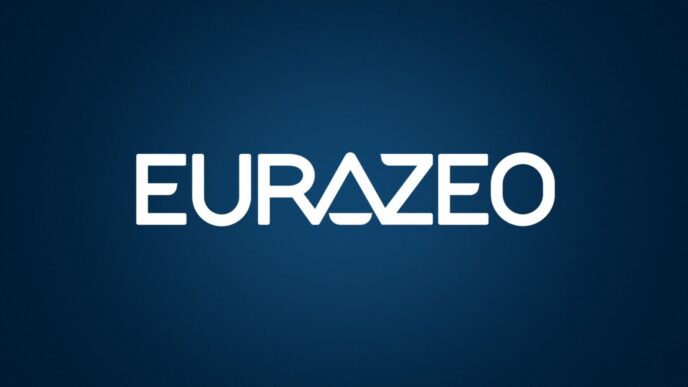Djamo, a promising neobank, has been making waves across Africa by targeting the region’s underbanked populations. While many digital banking startups concentrate on large African markets like Nigeria or South Africa, Djamo has successfully focused its efforts on Francophone West Africa, particularly Ivory Coast and more recently, Senegal. The fintech company has now amassed over 1 million users across these two countries.
The neobank raised $17 million in its latest equity round, marking the largest-ever fundraising for an Ivorian startup. This round surpasses Djamo’s previous $14 million Series A in 2022, reflecting the growing investor confidence in its mission to democratize banking across Francophone Africa.
Co-founder and CEO, Hassan Bourgi, chose not to disclose Djamo’s new valuation but did share that it has doubled since the company’s last raise.
Founded in 2020 by Bourgi and chief product officer Régis Bamba, Djamo was created to close the financial inclusion gap in French-speaking African countries, where many adults still lack access to traditional banking services. Historically, banks in this region have catered to the affluent, leaving the majority of the population relying on mobile money—a cheaper but more basic option for financial transactions.
Mobile money has already expanded financial access in Sub-Saharan Africa. According to the World Bank, 28% of adults in the region had a mobile money account as of 2022, with Africa holding over half of the world’s mobile money accounts. Despite this success, mobile money platforms offer only basic services such as cash-in, cash-out, peer-to-peer transfers, and bill payments, without providing advanced financial tools like credit, investments, or long-term savings.
Djamo seeks to fill this gap by offering the ease of mobile money with the financial capabilities of a traditional bank account. In this, Djamo follows a similar strategy to that of SoftBank-backed OPay and Transsion-owned PalmPay, which have scaled successfully in Nigeria by targeting a growing base of younger customers looking for more than the basic offerings of mobile money.
Bourgi explains, “These users are evolving, and they don’t want to go to institutions that are outdated, expensive, and designed for previous generations. Djamo is creating the go-to bank for this group, which is looking for wealth-building financial services.”
Expanding Product Offerings to Meet Growing Demand
Since its last round of funding, Djamo has broadened its product offerings beyond cards and peer-to-peer transfers. It now provides savings vaults, investment products (made possible by the region’s first fintech-issued brokerage license), and salary-linked bank accounts, which Bourgi sees as key to increasing user engagement.
While many neobanks attract banked users as secondary accounts for simple bill payments and mobile money integration, Djamo’s real potential lies in serving the unbanked. Over 55% of Djamo’s user base comes from this underserved group, and according to Bourgi, 90% of the app’s users who rely on it as their primary financial service are from this segment. To reach more unbanked customers, Djamo is combining its digital offerings with offline agents who meet customers in person—emulating the success of mobile money services across Africa.
Currently, only 5-10% of Djamo users receive salaries through the app. However, Bourgi sees this as an area for future growth: “Our next goal is to increase this figure from 10% to 50% of our users having their salaries paid directly into Djamo.”
Serving Small Businesses and Exploring New Revenue Streams
Djamo is also expanding its services for small businesses, with about 10,000 businesses onboarded, many of which began as individual retail users. The fintech now offers bulk payments, payment links, and QR code tools, enabling merchants to accept and manage payments within the app.
In terms of revenue, Djamo generates income through merchant fees on online card purchases and a premium tier plan, which 25% of its users subscribe to. The company is also exploring new revenue streams, including lending and earning interest on customer deposits. Djamo is working on securing licenses to offer interest-bearing savings accounts and credit products.
Since its launch, Djamo has processed over $4.5 billion in transactions, and its revenue has grown fivefold since 2022.
Competing with Larger Players
As Djamo expands into Senegal, it enters a market currently dominated by Wave, one of Africa’s largest fintechs. However, Djamo isn’t directly competing with Wave. Instead, it positions itself as a complementary service, offering a more advanced digital banking experience that includes savings, investment options, and credit—services that Wave doesn’t currently offer.
Now a team of 250, Djamo is using its latest round of funding to accelerate its expansion into more Francophone African markets. Janngo Capital, a pan-African VC firm focused on gender equality, led the $17 million investment round, alongside other investors including SANAD Fund for MSMEs, Partech, Oikocredit, Enza Capital, and Y Combinator.
Fatoumata Bâ, founder and executive chair of Janngo Capital, shared her excitement: “We are thrilled to lead the largest VC round in Ivory Coast and double down on Djamo, a mission-driven fintech transforming access to financial services across Francophone West Africa.”
With fewer than 25% of adults in the region having access to formal financial services and women facing higher exclusion rates, Djamo is addressing a critical need. Bâ highlights, “With women making up a third of Djamo’s users, Djamo is not only closing the gender gap but also unlocking economic opportunities at scale.”













